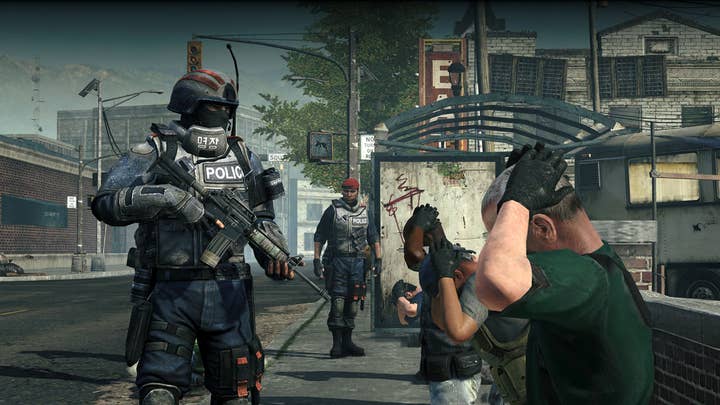THQ's imminent demise becomes clear | 10 Years Ago This Month
Five years of futility caught up to the publisher as yet another bad quarter and a cash crunch paved a short path to bankruptcy
THQ was in bad shape in November of 2012, but that was nothing new.
The last time the company saw an annual profit was in the fiscal year ended March 31 of 2007. It had spent five and a half years since in an almost constant state of restructuring and laying off and reorganizing and laying off and re-focusing and laying off and re-focusing again and laying off and laying off and laying off and laying off and laying off and, when it could find the time, putting out big games that didn't live up to big sales expectations like Saints Row 2, Red Faction: Armageddon, and its UFC franchise.
Things were so clearly bad for the publisher for so long that in April of 2012, Take-Two CEO Strauss Zelnick publicly said THQ wouldn't even be around in six months. That was technically a Bad Call as THQ survived through October, but November made it clear that was more a stay of execution than a commutation of sentence.
On November 5, THQ issued its second quarter earnings report, with revenues down 26% to $107 million and net losses of $21 million, which, sadly, was a considerable improvement over the previous year's second quarter.
Its biggest release of the quarter was the long-awaited Darksiders 2, which fittingly focused on the Horseman of the Apocalypse and cast players in the role of Death. Appropriately, its sales would not be providing THQ with hope of salvation.
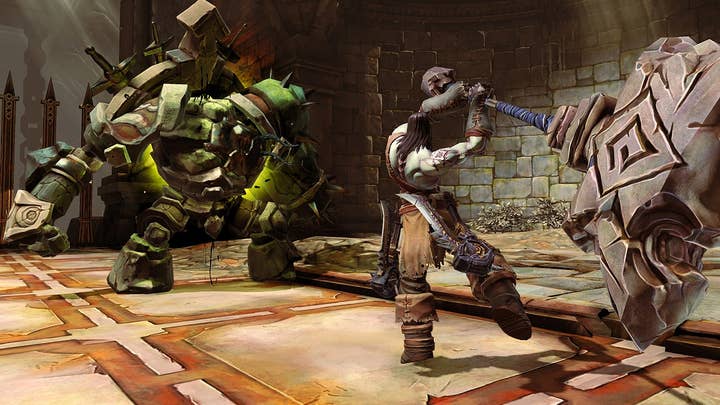
Equally concerning to the quarter's sales performance was the lack of help on the way. THQ delayed Company of Heroes 2 and Metro: Last Light to March of 2013, and pushed planned March release South Park: The Stick of Truth out of the fiscal year entirely.
Those delays hurt the company's outlook so much THQ wouldn't give sales and earnings guidance to investors. It wouldn't even answer questions from investors, although it did acknowledge it had a cash flow crisis and enlisted an external firm to help it find more money somehow, somewhere.
"Management has a track record of over-promising and under-delivering, and the company has been in turnaround mode for the last five years," Wedbush analyst Michael Pachter told investors after the earnings report. "The additional game delays, hiring of a financial advisor and refusal to take questions increase our skepticism that a turnaround plan can be executed before the company runs out of cash.
"We do not believe THQ is investable for most institutions."
THQ stock plummeted in value from squat to half of squat, dropping from $3.02 to $1.50 in the day after the earnings report. That looks especially bad when you consider that a few months earlier, THQ had to execute a 10-for-1 reverse stock split because it couldn't stay above the $1 minimum share price to stay listed on the NASDAQ.
THQ declared bankruptcy in December, and was then split up and sold at auction in January.
Why did THQ fail?
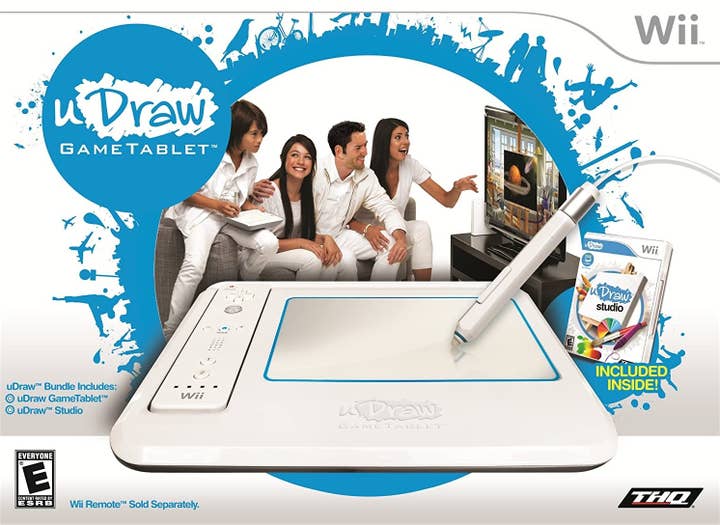
This one's a bit of a murder mystery. Without spoiling the specific murder mystery I'm thinking of, I'll just say there were a bunch of obvious culprits and the twist is that they were all in on it together.
A big part of it is that the industry became somewhat hostile to the type of games THQ had built its business on in earlier generations: middling licensed titles with middling budgets. The HD era spiked development budgets in a way that made it difficult to produce "good enough" games on the cheap, and movie adaptations fell out of favor with consumers and licensors alike. It didn't help that THQ thrived on making Pixar adaptations for years before Disney ended that relationship in 2010. THQ landed the Dreamworks animation license a year later, but that was – much like Dreamworks' films of the time – an inferior substitute for Pixar.
As for culprits more specific to THQ, there are many. The Warhammer 40K MMO was one. The Vigil-developed game was announced in 2007, coming around the tail end of the rush of World of Warcraft fast followers. THQ CEO Brian Farrell had told investors before the game's announcement that THQ didn't want to compete with World of Warcraft, but instead time its own MMO "for when that product is going to be on its downward slope."
THQ poured roughly seven years into the project (according to Vigil GM David Adams) and gave it a $50 million production budget. Five years after announcement, THQ said the effort was a little too rich for its blood, and began looking for a partner to help share the burden. It found no takers.
Then there were Devil's Third and the Guillermo del Toro project Insane, both announced in 2010. While it's hard to say how Insane would have turned out, Devil's Third seemed a particularly cursed project, especially since THQ had given Valhalla Game Studios and star developer Tomonobu Itagaki a budget almost as large as all of Itagaki's previous games combined. (That includes four Dead or Alive fighting games, two beach volleyball spin-offs, the mid-2000s resurrections of the Ninja Gaiden franchise, and more than 20 other titles by his count.)
THQ dropped both Insane and Devil's Third in 2012 as its fortunes unwound. Nintendo picked up Devil's Third and saw it through to its 2015 release as a Wii U exclusive. It flopped both critically and commercially.
Even when THQ succeeded, that had a way of coming back on it. Take the uDraw fiasco for example. The tablet-like peripheral for the Wii was a surprise hit upon its 2010 debut as a $70 peripheral that included an art studio program and had two compatible games sold separately: Pictionary and Dood's Big Adventure. At the time, THQ exec Danny Bilson joked that it was "selling so well I'm afraid they'll rename the company THQ-Draw."
But rather than just taking the win, THQ doubled-down on uDraw despite clearly concerning signs around the Wii market, the fading expensive peripheral trend (as accelerated by the woefully saturated rhythm game scene and the flop that was Tony Hawk: Shred) and the questionable notion that owners of the "core gamer" platforms were itching for uDraw. So in 2011, the publisher rolled out new uDraw tablets for the Wii, Xbox 360, and PlayStation 3 and six new uDraw games, including licensed titles for SpongeBob SquarePants, Marvel's Super Hero Squad, Kung Fu Panda, and Disney Princesses.
In its second holiday season on shelves, uDraw was doing so poorly that THQ slashed its sales expectations for the quarter by 25%, further damaging investor confidence and perfectly setting the tone for THQ's 2012 gauntlet of negative headlines. Among those headlines were multiple lawsuits alleging that THQ misled investors about consumer demand for uDraw.
Homefront was another THQ game that did surprisingly well. While the publisher's games would often see decent reviews but disappointing sales, Homefront was the opposite case. The first-person shooter set in a North Korean invasion of the United States attracted plenty of attention and was even the most pre-ordered game in THQ's history. However, when it launched in March of 2011 the meh review scores appeared to rattle investors and sent THQ's stock down sharply.
Regardless, THQ was pleased with the sales performance, noting that it "crushed the competition" when it came in third in the March 2011 NPD chart, behind Pokémon White and Pokémon Black, both of which released the previous September. Speaking with IndustryGamers, THQ CEO Brian Farrell focused on how the game beat out Crysis 2.
That made it a bit puzzling when THQ shut down Homefront developer Kaos Studios a few months after the game's launch and entrusted the sequel in the series to Crytek, the studio behind Crysis 2.
Farrell obviously shoulders the most blame in THQ's fate by virtue of his position and his tenure with the company, but it's not like he personally made every bad decision.
Bilson, who became the public face of the company shortly after his arrival in 2008, also frequently comes up when people talk about THQ's demise. But his remit was "core games," and his stint produced some well-loved and enduring core games, even if they didn't always meet with commercial success. (Darksiders 1 and 2, Warhammer 40,000: Space Marine, Metro 2033 readily come to mind. Deadly Creatures also deserves a nod purely for thinking outside the box.)
Jason Rubin, who took over as president in May of 2012 when THQ was already in bad shape, can only be blamed for possibly choosing the wrong Hail Mary plays at the last minute, and it's not like a decade's worth of hindsight has given us a wealth of sterling alternative calls he should have made at that point. (It's much easier to second guess the decision to sign on with THQ in the first place.)
But as we can infer from Bilson's comments months after THQ had been broken up and sold for scrap, the people running the show had badly misjudged the situation.
"Listen, when I left [in May of 2012], we didn't see what eventually happened on the horizon," Bilson said. "I'm not kidding, okay: we knew we were in trouble, but we knew we had a good line-up, and I thought we had enough money put away to support that stuff, finish it, and market it properly. We had a plan to live another day."
Without any privileged knowledge of the situation, I think it's reasonable to look at the death of THQ the same way as anything in this industry: it was a team effort.
So what happened after THQ folded?
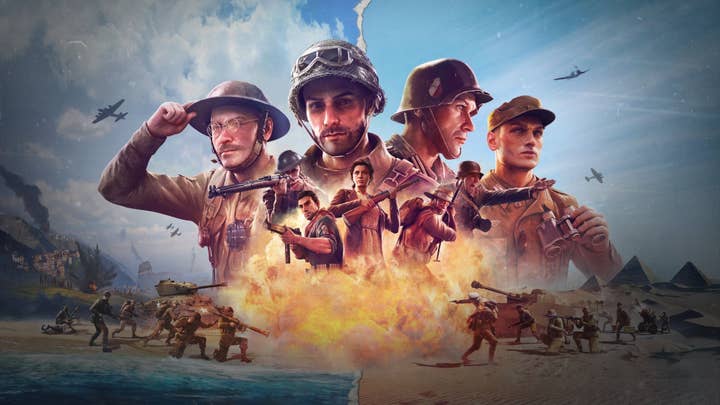
In short, rival publishers picked the bones clean.
At the initial bankruptcy auction, Koch Media claimed Saints Row and developer Volition, as well as the Metro IP and Metro: Last Light, which was nearing completion at Ukrainian developer 4A Games. Several months later, Nordic Games picked up rights to the Red Faction, Darksiders, and the MX Series, while Gearbox purchased the Homeworld franchise.
Nordic would go back in 2014 and acquire the THQ trademark to go with those series.
Crytek would acquire the Homefront since it was already working on the sequel.
Poor Vigil Studios went unclaimed at auction and the Darksiders developer shut down.
But Vigil GM David Adams and a few dozen former Vigil staff found backing from Crytek and set up Crytek USA. The honeymoon would last a little over a year, as Crytek hit a very rough patch in 2014 that saw it miss employee payroll for months and give interviews with headlines about how completely not-doomed the company was.
In the midst of this, Crytek sold the Homefront IP to Koch Media and simultaneously announced that it was basically shutting down Crytek USA and only keeping a few members of the studio to stick around as a support team for North American developers using its CryEngine tech.
Adams and the Crytek USA lead developers would quickly form Gunfire Games.
Just in case it hasn't clicked yet, every company and brand mentioned so far in this section – with the lone exception of Crytek – is now part of the Embracer Group.
Once it owned the THQ trademark, Nordic Games changed its name to THQ Nordic. THQ Nordic acquired Koch Media in 2018, and picked up Gunfire Games in 2019.
After THQ Nordic (the publisher) ran an "Ask Me Anything" session on a messageboard notorious for hate speech, child pornography, harassment, and abuse, THQ Nordic (the parent holding company) apparently was no longer comfortable sharing the name, so it entered the witless protection program and emerged with the new identity of Embracer Group.
Embracer acquired Metro developer 4A Games in August of 2020, and then its 2021 deal for Gearbox Entertainment would finally unite all of the non-Crytek brands, studios and companies above within the Embracer Group.
As for THQ properties that have not (yet) been re-assimilated into the Embracer Group hivemind, Sega walked away from the initial auction with Relic Entertainment, which continues to produce the Company of Heroes and Warhammer 40,000: Dawn of War series that made it one of THQ's strongest performers.
Ubisoft grabbed South Park: The Stick of Truth, which wouldn't be finished until 2014 but was received well and earned a follow up game, South Park: The Fractured But Whole.
True to its name, Take-Two took two parts of THQ. It landed the WWE license, which worked out well as Take-Two continues to make wrestling games with it every year (a 2021 hiatus aside). It also picked up Turtle Rock's Left 4 Dead asymmetrical shooter follow-up Evolve, which stumbled upon release in 2015 and made an (ultimately unsuccessful) pivot to free-to-play.
History repeating?
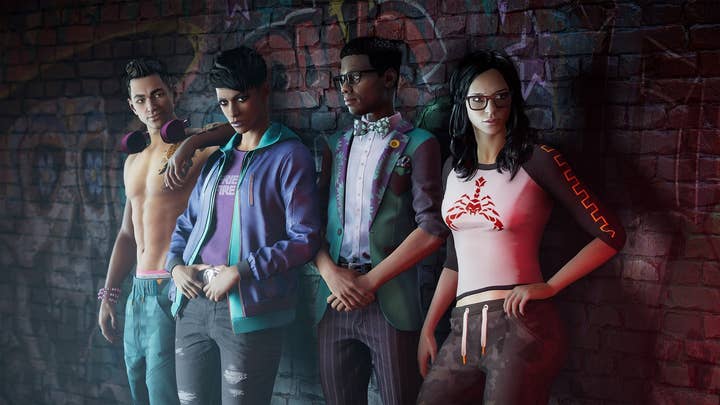
Embracer resembles THQ a lot, and not just because it has painstakingly assembled almost every key part of the publisher like a B-tier Avengers (or perhaps just the Defenders) over the past decade.
For decades, THQ made its money playing small ball. It focused on quantity of games over quality. It wasn't looking to go toe-to-toe with the big AAA publishers, instead leaning on a wealth of licensed games supplemented by a few original franchises. As the industry evolved into the HD era, the escalating budgets and timelines made that strategy less viable. THQ leaned into original IP, and it was successful to some extent. The array of owned franchises picked up at auction that have seen further releases is evidence enough of that.
Embracer feels like an evolution of THQ's original strategy to me. In an era where the AAA side of the business has leaned into "Fewer, Bigger, Better" and narrowed to the finest of points, Embracer has been throwing everything at the wall and seeing what sticks. It has a handful of legitimate big-name franchises, but if Darksiders 3 and Saints Row are anything to go by, Embracer is running into some familiar problems with realizing their potential.
The company has some familiar answers to its problems too. Earlier today, Embracer reported its quarterly earnings and signaled some changes to come.
Like the THQ of old, Embracer is investing more in large-budget AAA games.
Like the THQ of old, there's likely to be significant restructuring. Embracer is starting that by moving Saints Row developer Volition into Gearbox, saying it "is the first internal group transfer where we transfer a major studio between operative groups, but it is not necessarily the last."
Like the THQ of old, the strategy that built the company needs to change. Embracer has started a review of the entire company – a sprawling acquisition-fuelled enterprise that now boasts 118 different studios – to see what's going to be viable going forward. While it suggested spinning off operations that don't fit instead of a THQ-style wave of closures and layoffs, the key theme here is an acknowledgement that a quantity-over-quality approach is not well-suited to the current market. (And it's not like THQ of 2007 was telling investors to brace for five years of constant misery, either.)
These aren't necessarily ill omens. Publishers always need to adapt and change with the market or risk being left behind. But I've always been a bit skeptical of Embracer's acquisition spree producing any kind of sustainable business, and if that skepticism proves well-founded, I wouldn't be surprised if we look back on today's news as a turning point in the company's fortunes.
Or maybe I'm just desperately trying to make a historical retrospective column relevant to what's happening today. Can't rule that one out.
What else happened in November of 2012
● Nintendo launched the Wii U, and while it "essentially sold out" early on, it was clearly not an unmitigated success. It failed to land a single game in the UK top 10 software chart in its launch week there, retailers were already offering steep discounts for people buying multiple games, and reviews for the launch lineup headliners were all over the map.
Can you guess the best-reviewed game of launch, going by Metacritic averages? I'll save you a click. It was THQ's Darksiders 2, with an 85% score. We'll just put THQ in the column of companies that have bested Nintendo on their own hardware, right next to EA.
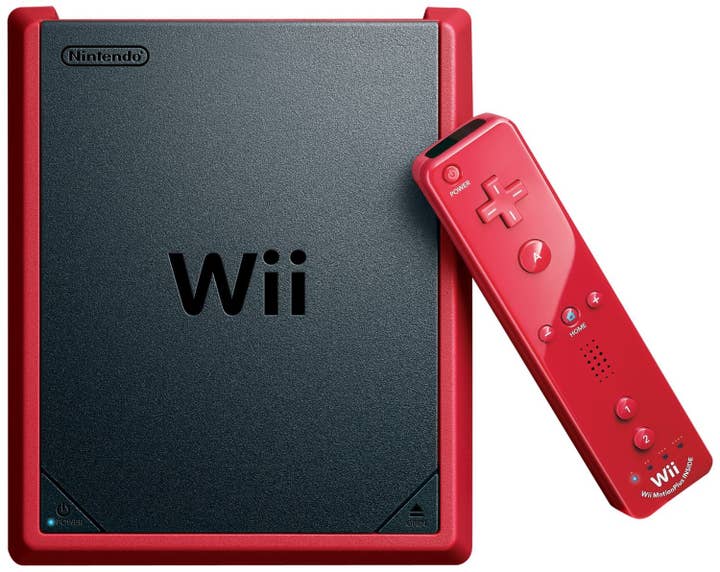
● November also saw first word of Nintendo's next new console, the Wii Mini. A re-tooled black-and-red version of the Wii, the Wii Mini cut out features like Gamecube backward compatibility and internet connectivity and sold for $100. It launched in December in Canada, and was rolled out in more markets in 2013.
● Xbox was reportedly working on a new low-cost device to allow casual users to play games on their TV. The report makes it sound like little more than a Roku box running on Windows 8, but the basic concept is one Microsoft has revisited a couple times since, but not yet shipped.
● There was a big scandal about ethics in game journalism. No, not that one. This one was actually about ethics in games journalism with harassment of women as an unwanted and ancillary component of the story, sort of the reverse of the dumpster fire we would get two years later.
● And because November of 2012 was a month full of days ending in 'y,' we also had people trying to warn us about misogynistic undercurrents in the industry. The #1ReasonWhy hashtag gained traction on Twitter late in the month, with people across the industry offering their explanations for why there aren't more women game developers. The hashtag contained a litany of legitimate grievances women in the industry faced, from unequal pay to lack of representation to sexual harassment to lack of respect to backlash against anyone trying to address such grievances.
● Our story about Sony's The Last Guardian referred to the game as having "almost become a running joke within the industry" because it had been revealed at E3 three years prior but had missed its original release window by a year. It would be another four years before the game finally launched in December of 2016.
● Peter Molyneux's indie studio 22 Cans launched its first game, Curiosity: What's Inside The Cube?, a free mobile game where users tap away layers of a cube one tiny block at a time, with the person who taps the final cube being rewarded with a "life-changing" mystery prize. The prize wound up being the role of the deity in 22 Cans' second game, the Populous spiritual successor Godus and a portion of the game's revenues.
As Eurogamer reported a few years later, the winner actually wound up getting a flight to 22 Cans and a studio visit, but no money, no inclusion in the game, and until the report, no apology from the studio. However, after that report went out, indie studio Roll7 and publisher Devolver reached out to put him in their game Not a Hero.
Good Call, Bad Call
GOOD CALL: Molyneux may have done his reputation no favors with the Curiosity prize and how that Godus contest played out, but at least he got a taste of being on the right side of history when it came to expressing skepticism about the Wii U and second-screen gaming in general. He was joined by another legendary figure in games whose batting average had taken a dive in recent years, as Atari co-founder Nolan Bushnell said he was "baffled" by the Wii U and didn't think it would be a big success.
However, Bushnell's reasoning for that addressed the console space in general and came awfully close to one of our favorite recurring Bad Calls. As he explained, "These things will continue to sputter along, but I really don't think they'll be of major import ever again. It feels like the end of an era to me."
BAD CALL: If Bushnell was uncomfortably close to the "consoles are dead" Bad Call, RedOctane co-founder Charles Huang was squeezing into a packed elevator at the height of Covid with it. While pitching his new start-up Green Throttle Games and its upcoming controller for smartphones and tablets, he predicted the ability to hook mobile devices up to the TV and play them with a standard pad would replace the console market, saying, "The trends in the industry are moving this way. It is on an inevitable path. We are doing the next evolution."
(Unrelatedly, Huang's warning that "The television wars are coming" was also a bad call, but a compelling tease that we hope will be fleshed out in a Disney+ series or perhaps a prequel trilogy further down the line.)
GOOD CALL: Don Daglow also weighed in on the future of gaming – specifically in how publishers will operate in a post-Kickstarter world – and came up with something that was actually pretty darn accurate in part because he was basically predicting more of the same, but a little different.
"My crystal ball says that big publishers are still an important part of the landscape in 10 years," Daglow said. "I just think that they will function differently than some of the models we see today. My guess, my instinct, is that, first of all, we're going to continue to have big blockbuster games on consoles and various platforms that will come from long term dedicated in-house teams of publishers... The exact structure may metamorphose a little bit.
"I think that 10 years from now - I think you have to go out 10 years for it to get really interesting, because that's when you have a chance for things to just completely make your brain fall out with the change - I think that having a box that is attached to the big living room entertainment screen that gives you really high quality visually stunning game play, I think that that is still going to happen. Now, the question is whose box is that going to be and exactly what is that box going to be like?"
The answer – just like in 2012 – is Sony, with a smaller group of people going with Microsoft. And just like in 2012, Nintendo has abandoned the graphics arms race to focus on what it does best; it's just having more success with it right now.
As for what the box is going to look like, the answer is either a very big Rorshach test or a fridge.
GOOD CALL: Former head of Microsoft's game division Ed Fries said console makers must follow the lead of the company he was advising at the time, Ouya. You might assume that's a Bad Call because the Android-powered microconsole is remembered as a flop, but what he was calling for was a relaxed certification process better suited to small developers, free-to-play games, and games-as-a-service. In that sense, Fries was absolutely right, and Microsoft, Sony, and Nintendo have all significantly reduced the barriers to getting on their platforms and outdated restrictions around new content updates.
BAD CALL: This one's on us, for telling people "Chris Roberts' space sim nears the finish line" in the strap line on top of this Star Citizen story when it was nearing the end of its Kickstarter campaign with a whopping $5.2 million in crowdfunding. As of this writing, Star Citizen has raised more than $510 million in crowdfunding. Bits and pieces are in a playable alpha state, but it still has no release date. This game is nowhere near the finish line, regardless of whether you're talking about funding or development.
BAD CALL: In the wake of multiple scandals over Zynga cloning other developer's work, Zynga CEO Mark Pincus put a happy face on straight-up thievery, saying, "We define innovation differently than the whole game industry does… we don't define innovation by whether or not our Words With Friends game looks different enough from Scrabble. We think it's an innovative game because it has connected tens of millions of people together."
First, even using Pincus' Bizarro-world dictionary, Zynga can't take credit for Words With Friends' innovation. Zynga acquired the studio in 2010, after the game was already a hit.
Second, this new pro-innovation stance from Pincus was a pretty dramatic turnaround from 2010, when he told employees, "I don't fucking want innovation. You're not smarter than your competitor. Just copy what they do and do it until you get their numbers."
GOOD CALL: GameStop CEO J Paul Raines recognized that the retailer was facing an existential threat, saying, "GameStop knows full well that the future is moving away from games on discs sold in retail stores. It's not clear how fast things are changing or where growth will be strongest, so GameStop has to place bets on many areas."
While current management has not articulated a coherent strategy, it seems to be following the "bet on many areas" approach. But instead of broader tech offerings and collectibles, it seems to be betting the company's future on NFTs and its meme stock status.
I'll pencil that in as a Bad Call for a 2032 column.
